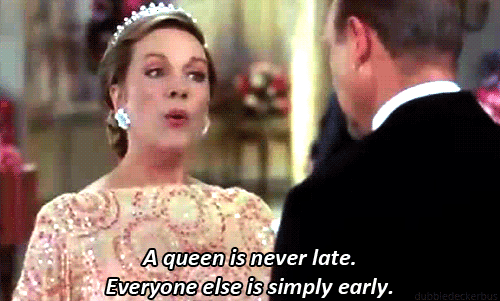
* Update: This story, reported by numerous news outlets, has been the subject of an article by Lead Stories, which found it to be inaccurate. The story previously stated that a study had showed that people who are often late will tend to be more successful and live longer. This is incorrect and has been deleted. The headline has also been updated to remove any link between tardiness and success. We are happy to update the matter. 26/06/2019
We all know that one person, a friend, a colleague, a sibling, an uncle that's always late to everything whether it be work, social events or family gatherings (if you don't know someone, it's you).
According to some theories, those who are late tend to be less prone to stress, more optimistic and more enthusiastic.
People who are disorganised, and therefore always late are often more 'extroverted, spontaneous, high-spirited and playful', according to the Personality Types study.
Diana Delonzor, a time management speaker and author of 'Never be late again' expresses the opinion that:
Many late people tend to be both optimistic and unrealistic, and this affects their perception of time. They really believe they can go for a run, pick up their clothes at the dry cleaners, buy groceries and drop off the kids at school in an hour.
They remember that single shining day 10 years ago when they really did all those things in 60 minutes flat, and forget all the other times that everything took much, much longer.
Different types of people actually perceive time differently.
The passing of time actually feels different between different types of people. According to a study from Jeff Conte, an associate psychology professor at San Diego State University carried out an experiment of 'type A' and 'type B' people. Type A are more competitive, organised and impatient, type B people are more relaxed, disorganised and creative. After one minute, they asked people from both groups to guess how much time had passed. Type A people averaged guesses of 58 seconds, whereas type B answered 77 seconds.
Multi-taskers also perceive time more slowly.
Conte assessed 181 New York subway operators and found that those who often multitasked tended to be late more often than others.
Why? Because they're engrossed in what they're doing, and therefore lose track of time.
Another benefit for tardy people is that they're less likely to experience heart disease.
Perhaps unsurprisingly, those who are more uptight are more prone to stress and therefore heart diseases, according to a study from the International Journal of Clinical and Health Psychology.















